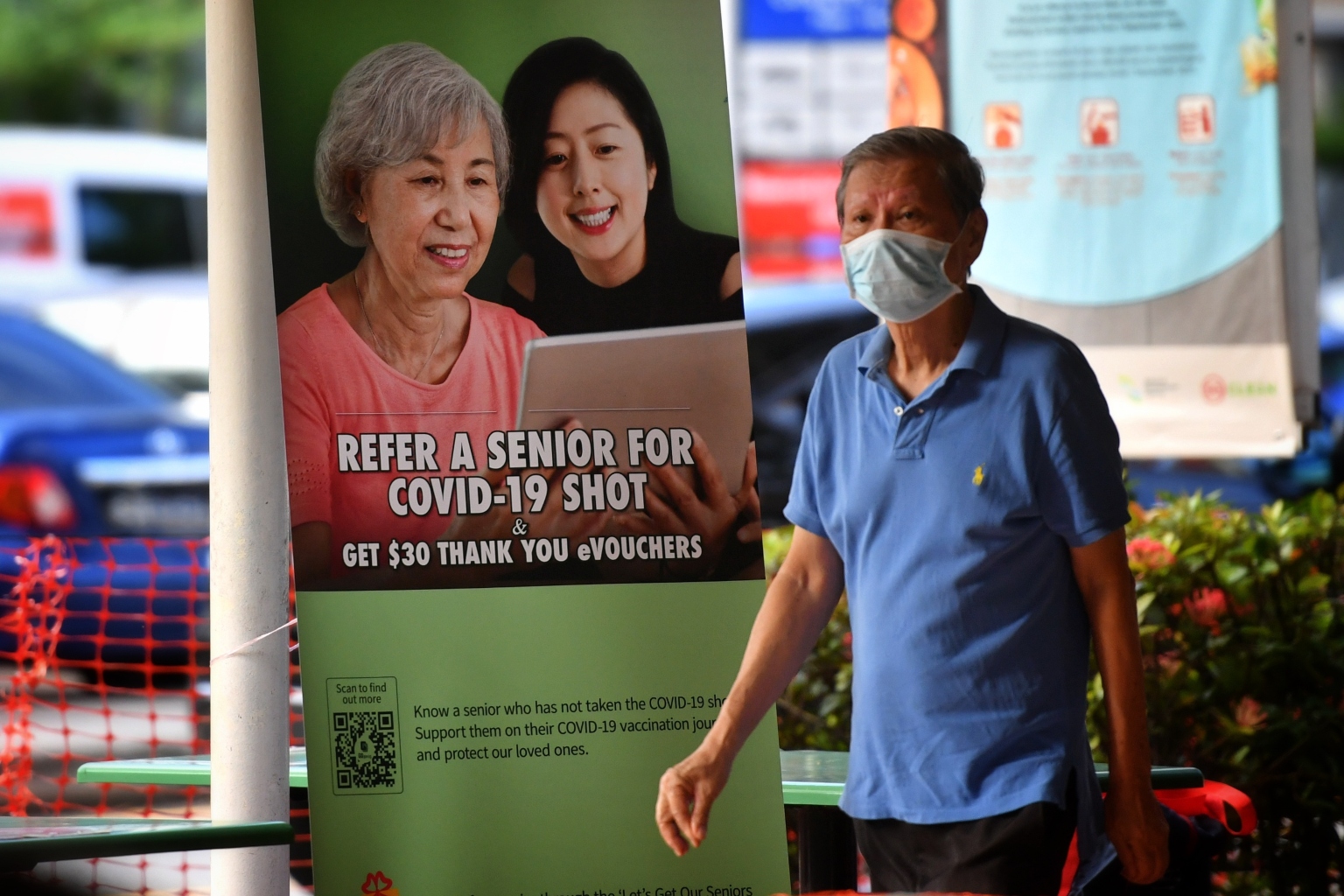Focus on public health in recent years helping to attract talent: Expert
Sign up now: Get ST's newsletters delivered to your inbox

Medical staff tend to a recovered Covid-19 patient at Singapore General Hospital.
ST FILE PHOTO
SINGAPORE - If there are silver linings to the Covid-19 pandemic, greater awareness of the critical work of public health specialists in fighting infectious diseases is surely one of them.
The raised profile of these researchers in recent years has helped to attract the next generation of public health experts, the dean of Singapore's only fully fledged national public health school here told The Straits Times.
The pandemic and national initiatives such as the war against diabetes and measures to curb sugar intake have made more people realise that many issues in life have their roots in public health, said Professor Teo Yik Ying, dean of the Saw Swee Hock School of Public Health at the National University of Singapore (NUS).
On April 24, Prime Minister Lee Hsien Loong called on the medical community here not to let the valuable lessons from the pandemic - for which Singapore has paid dearly - go to waste. Among these lessons is the need to further develop the Republic's emphasis on public health.
Public health refers to the study of how the health of populations can be improved and protected, whereas clinical medicine is about finding the best way to treat individual patients.
"In normal times, many other 'popular' medical specialisations are more sought after," said PM Lee. "Yet, in a pandemic, as we have seen, public health expertise is absolutely crucial."
This is why it is crucial to ensure that there is a constant pipeline of public health talent being developed, said Prof Teo.
To give NUS students exposure to public health work and amplify their interest in learning more about the field, the school introduced a public health general elective module, which about 1,500 students sign up for every year.
But besides training the next generation of public health leaders, Prof Teo said he is equally focused on making sure the school's research translates into practical and useful information that influences the Government's programmes.
Among the challenges issued by PM Lee last week was to grow local skills in assessing and predicting disease trends and to evaluate alternative public health measures, so that high-quality public health data informs policymaking.
This is why students at the school are continually encouraged to think about how their work can be expanded and applied to real-world issues, said Prof Teo.
"You won't be an expert in public health if all you do is your own research but never ask 'what is the meaning of this to the real world', or how you can communicate this successfully to the rest of the community," he said.
For public health research to benefit the national healthcare system, experts in the field must draw on multiple disciplines such as ethics, economics, epidemiology, statistics, and communications, he said.
Revealing that only about 30 per cent of the faculty in his school are clinically trained, Prof Teo - himself a mathematician and statistician without clinical training - said: "We see that to be important because they bring their lens, their way of viewing things… to take healthcare data and make sense of it."
Humility is therefore one of the most important traits in a public health expert.
"I must accept that as a statistician, I can contribute to only one part of the solution. I need to work with a behavioural scientist, a clinician, an economist, to jointly put together the solution," he said. "That means I am open to working with others, and I alone cannot solve this."

The school today already works closely with the Ministry of Health, such as by sharing its research findings on public health matters like the clinical burden of diabetes and the effectiveness of policies in the long-running war on tobacco.
Prof Teo said the school also helps the Government evaluate the impact of its health programmes and works with the three healthcare clusters here to jointly solve problems.
During the pandemic, the school's experts also became familiar voices in the mass media, as part of efforts to reach out and share their knowledge of the virus and explain transmission control measures to the wider public.
The school is clear-eyed about the work that lies ahead, said Prof Teo. He highlighted the shift towards patient-centred, preventive care as part of the Healthier SG initiative by the Ministry of Health to keep the population healthier and healthcare expenditure more sustainable.
"At the end of the day, public health focuses on value and prevention," he said. "And public health academia is really about not just training the next generation of public health leaders, but equally about translating our research findings into practical useful information that will influence policy and programmes."


